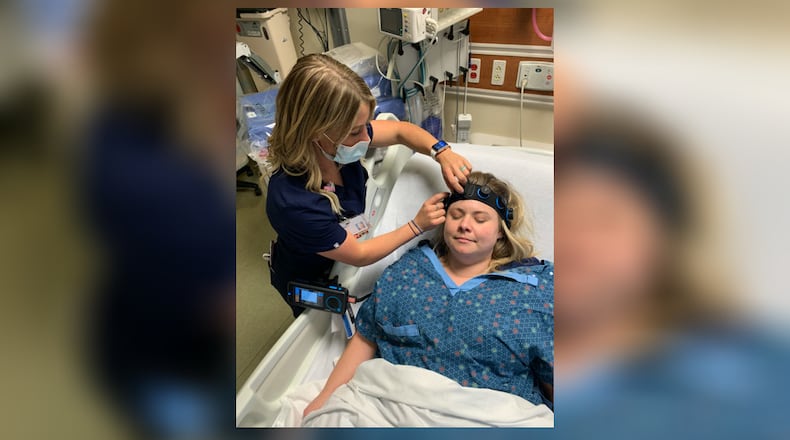Using the new system, clinicians at Springfield Regional Medical Center will now have immediate access to information about a patient’s electrical brain activity so they can triage at-risk patients in five minutes and monitor patients for treatment.
“This new technology enables our staff to get the diagnostic information they need much faster, helping them make better informed treatment decisions, and that’s critical to ensuring the best possible outcomes for our patients and their families,” said Mercy Health – Springfield Regional Medical Center’s neuro care coordinator, Susan Erbaugh.
Critically ill patients are at high risk of seizures, specifically those that show no outward signs and can only be detected using the test to monitor the electric sensitivity of the brain, the hospital network said.
If prolonged, non-convulsive seizures can lead to permanent brain injury, higher risk of morbidity, and longer hospital stay.
Guidelines from the Neurocritical Care Society recommend EEG should be initiated within 15-60 minutes when these seizures are suspected. Meeting these guidelines has proven difficult due to the limitations of conventional EEG systems, which were not designed for use in emergency situations, according to Mercy Health.
The Ceribell Rapid EEG Brain Monitoring system was developed so patients at risk of seizure can be triaged more quickly.
“While conventional EEG continues to be useful for routine or scheduled testing, having around-the-clock access to this new system really raises the bar in our ability to deliver quality care. It will no doubt help us save even more lives and improve quality of life in cases where every second counts,” said Jennifer Sargent, of Mercy Health – Springfield Regional Medical Center.
The device consists of a simple headband, pocket-sized recorder with intuitive software, and an online portal for remote viewing. Using the Ceribell system, physicians can review EEG data, assess response to treatment and optimize care, all in real-time, according to the hospital network.
“Ceribell founders saw that critically ill patients often experience undiagnosed non-convulsive seizure as a result of lack of access to EEG. Some suffered major neurological deficits while others simply didn’t make it. It is our mission to ensure no patients suffer unnecessary brain injury as a result of not having prompt EEG. We are excited to see visionary pioneer health care practitioners at Mercy Health – Springfield adopting the technology and transforming their EEG capability,” said Jane Chao, co-founder and CEO of Ceribell.
The Ceribell Rapid EEG Brain Monitoring system is being rolled out at Springfield Regional Medical Center, but Mercy Health said it plans to expand its use to other facilities within the Springfield market in the future.
About the Author

